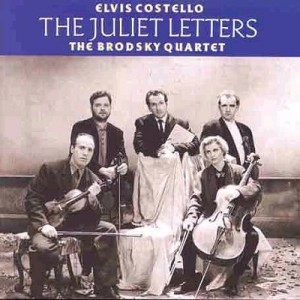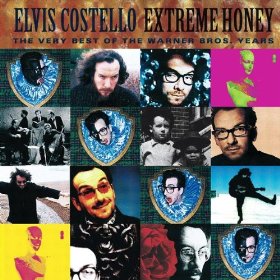
Elvis Costello Posing With The Brodsky Quartet
It might seem incredible, but it is actually possible to pinpoint the moment Costello’s career went into definitive artistic overdrive. The year was 1993, and he released a full-length CD devoted to chamber music where the instrumental backing was solely provided by the Brodsky Quartet.
Costello learned to write and read music right there and then, and the decade was to be his most adventuresome ever. And believe me, that is quite frankly saying an enormity if we look at his previous output. During the 90s and right into the new millennium he was to release an album of undiluted pop with 60s stalwart Burt Bacharach, a country album (The Delivery Man), an album dominated by ballads (All This Useless Beauty), an orchestrated work named Il Sogno… and the rock and roll albums he did release were not up to his usual standards (When I Was Cruel), as if he had just outgrown the genre. He was to become acquainted with it once again in 2008 with the release of Momofuku. But the previous decade was to be a true creative windmill on the other side of the grass. Continue reading

